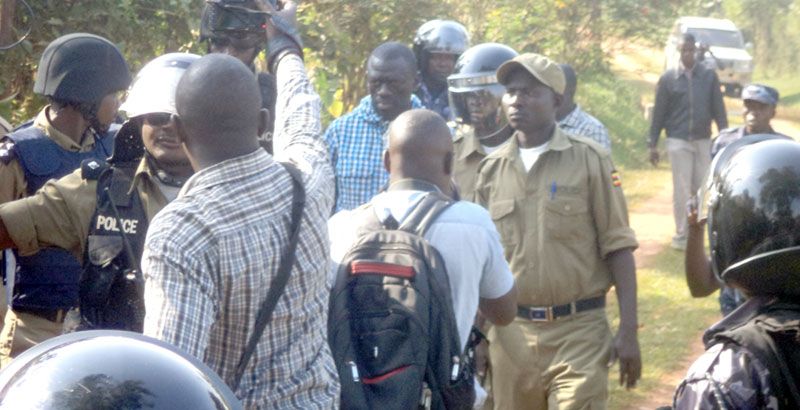
Someone tell Dr. Besigye, the medicine for a patient suffering from cancer cannot be Coartem even though such a patient could test positive to malaria!

Dr. Kizza Besigye (in a blue checkered pullover) has been in and out of prison an uncountable times
I am always told that politics is not religion; that one must always look for ways to victory, clinic regardless of the means. Yet I cannot stop getting astonished by the rate at which our politics has become unreligious. Ours has not gone to the dogs; the dogs have come to our politics.
Last week we witnessed, firsthand, one of the more radical fantasies of mankind; that democracy can be achieved in any country particularly in Uganda, with its socio-economic and political structure!
During the campaigns, I saw smart people getting carried away by Dr. Kizza Besigye’s big crowds at campaign rallies. Many believed that Besigye would win the election. Many actually still believe that Besigye lost simply because the election was rigged.
Many cite the irregularities such as the delayed delivery of polling materials in Kampala and Wakiso districts, failure by the Electoral Commission (EC) to declare results in a more transparent manner, failure by the EC to provide declaration forms to candidates in time, etc.
Many well educated people, some of who are well grounded in analytical skills, believe that Museveni was simply declared by EC Chairman, Badru Kiggundu basing on results that were not coming from the polling stations across the country, but from some tally centre manned by Museveni’s hangers-on. Many are so convinced in their beliefs based on rumors and hearsay but not evidence.
Are all elections rigged?
Many who are reading this piece have already gotten bored, if not angry with me. They simply do not want to hear what I am writing here. They can only listen to someone who amplifies the general consensus: the 2016 election was rigged by the incumbent.
That is the very point I want to address this week. The 1980 election was rigged by the incumbent (Obote’s UPC). The 1996 election was rigged by the incumbent (Yoweri Museveni). The 2001 was also rigged by the same incumbent (Yoweri Museveni). The 2006 election was rigged by the incumbent (Yoweri Museveni). The 2011 election was rigged by the same incumbent. And just last week, the same incumbent, Y.K. Museveni, rigged another election.
So, who has ever won an election in Uganda? No body. Then, why do we continue to vote every time the election comes around? Many will say, “Because it is our constitutional right and duty.” When do we often realise that election has been rigged? On the voting day, through the tallying and declaration of results!
After the “rigging” we are so angry, some of throw away or even burn the voter’s card and swear never to participate in “these fraudulent and staged elections”. After five years of healing, and with bigger rallies addressed by our favourite candidate, the excitement delivers us to the polling station.
I have heard Dr. Besigye lamenting how the electoral process in Uganda is fraudulent and cannot deliver a free and fair election for countless times. I have lost the count of the times Dr. Besigye has declared how “I will never participate again in an election organised by Mr. Museveni.” Yet he has challenged and lost to Museveni a record four times!
Even M7 cannot defeat M7
Fellow Ugandans here is the truth: no one cannot defeat Museveni in an election in Uganda. Not even Museveni can defeat Museveni! To put it more clearly, even Museveni cannot defeat Besigye if they swapped positions: Besigye, the incumbent and Museveni, the challenger.
I am sure we agree with many of my readers up to this point. Now, let me add one statement: Museveni is defeating Besigye, not because he is rigging the elections. Even Museveni would not defeat Besigye, if they swapped positions, by rigging. No.
The reason Museveni is winning is because Uganda is structured in such a way that it is exceedingly difficult to defeat a hardworking incumbent. Democracy cannot work in societies structured like Uganda. It simply doesn’t work anywhere in the world in countries structured like ours.
I have on several occasions written in these very pages why I seriously think that countries such as Uganda need benevolent dictators — not the current staged democracy. I have asked, “What democracy do you hope for in a country where 80% of its population lives what economists refer to as a “culture of poverty?”
On February 16, about 20 hours to the voting day, I posted a simple analysis on my facebook wall where I stated thus, “…if one went by what [some] Ugandans have been saying in media, Besigye should start ironing his best suit for swearing in as the 9th President of Uganda.”
I continued, “But wait a minute, the 2014 census revealed that 82% of Ugandans live in rural areas. Only 14% of Ugandans use electricity. Actually, 58% use tadooba for lighting. Only 2.4% have a certificate of any kind; only 0.8% have degrees. Adult Ugandans who cannot read or write (the illiterates) comprise 32% nationally, and 44% in rural Uganda.
“Although Ugandans with access to a telephone have increased to over 19 million, those with Smartphones comprise only 5.2 million (15%). Those with access to internet make only 15% of the total population.”
Politics of keeping people poor
I told my followers on facebook that the reason I was boring them with these numbers was because I wanted to put their expectations in perspective. I wanted them to build their expectations, as we headed into the polls, with a clear mind that what we (elites) chat on facebook, twitter, watsapp, YouTube, in newspapers, televisions etc, represent utmost 20% of Ugandans. The “real” Uganda (80%) is often out there growing potatoes and beans for own consumption, playing mweso in trading centres, drinking malwa and waragi, hunting a few rats to feast in the evening, making babies to send to UPE schools, and waiting for the polling day to vote to whoever promises them “relevant things.”
What are the most pressing needs (the relevant things) of an average Ugandan? Kindly never forget that an average Ugandan is not you who is reading this piece. The typical Ugandan belongs to the 80%, the group whose features I have described above. Failure to appreciate this reality is synonymous with hiding our heads in sand. That group mainly has what Abraham Maslow refers to as “physiological needs” as the most pressing needs – food, shelter, a few clothes to cover their bodies or at least their private parts, peace and security etc.
Before satisfying those needs, other issues in society do not make sense to a human being. This is where Museveni beats us. Some of the headline-making promises of his campaigns were things like hoes (to grow food), money for malwa groups, continuation of UPE and jailing head-teachers who ask for any money from parents, sanitary pads to all school-going girls, and keeping the peace to allow everybody to sleep soundly.
Other candidates, and us all, ridiculed his message. Our rational minds focused on providing modern farming equipments, such as tractors, planters, etc. I remember Museveni telling media, “But that is what the people are asking for. My people (the intelligence and RDCs) bring me these messages. Those who are laughing at our proposals, wait you will see [the outcome in ballot boxes].”
Of course this is the politics of keeping people poor. Poor people do not ask for big things; the big things do not make sense until people have satisfied the “small” ones (the physiological needs).
The incumbent takes full advantage of this structure of Uganda. He spends nearly three years in the villages of Uganda campaigning and bribing the “typical voter” with those small things. Yet when the official campaigns begin, he still possesses an unprecedented advantage over his competitors. He uses State facilities: choppers, armored vehicles, civil servants, security agencies etc to do campaigns.
Stop staged democracy
In my view Uganda must sort out one fact: we must get rid of the curse of incumbency. Museveni has helped us to realise that it simply doesn’t make sense for us to continue on the current trajectory. No one has a chance against the incumbent, particularly an incumbent as strong and ‘hardworking’ as Museveni; more so one who does not take any chances.
When campaigns begin, Museveni portrays a desperate demeanor that dupes his competitors and the analysts into thinking that he is in a weak position. He addresses more rallies than his competitors, begs voters in a more desperate way than his competitors, spends more money, etc. He simply doesn’t give any chance to his competitors. This time round he even allowed Besigye to campaign largely in peace, except for the last two incidents in Kampala. All this was done to paint a picture of democracy yet in real sense Mr. Museveni knows no one can defeat him.
As I conclude, I would like to address the President as follows; Mr. President, six years ago, I wrote in these very pages an article in which I requested you to be honest with us and with yourself by doing the following: stop this staged democracy, ask your MPs to decide the number of years you want to rule, change the constitution as your friend and former student, the President of Rwanda, did recently. Settle down, drill ‘your’ oil and use the money to build us quality public services. When time comes and you are either too old or too weak to rule, give this country a chance to rewrite the constitution in a manner that will never allow a strong man to suffocate change.
Few people of my age and below know the facts about Uganda (economic, social and political) better than I do. In the short time I have lived, I have been privileged to enjoy unprecedented access to power brokers through professional and social networks allowing relationships of trust to be built and permitting unusually frank discussions to take place. Ten years ago, I came to learn that in politics (particularly in republics of our type), if you don’t get what you want, want what you get.


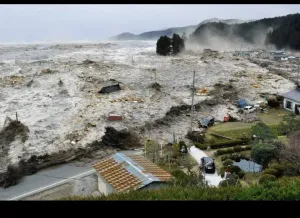

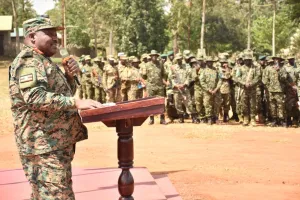
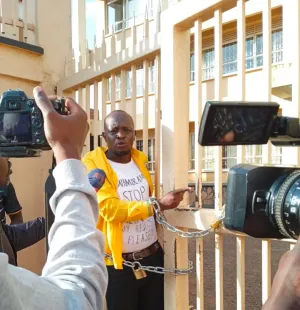





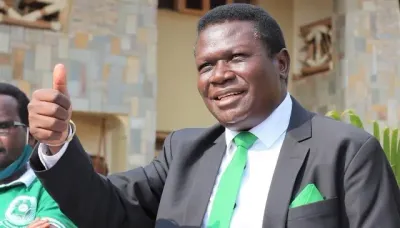
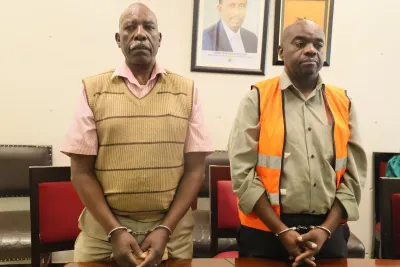
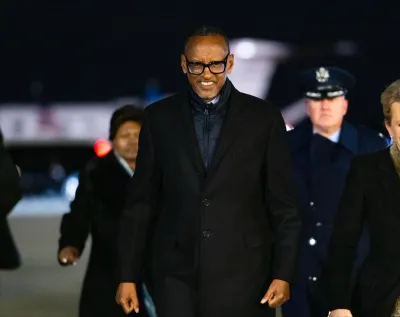
Ramathan Ggoobi
Ramathan Ggoobi is Policy Analyst, and Researcher. He lecturers economics at Makerere University Business School (MUBS) and has co-authored several studies on Uganda's economy. For the past ten years, he has published a weekly column 'Are You Listening Mr. President' in The Sunrise Newspaper, Uganda's Leading Weekly
Leave a Comment
Your email address will not be published.